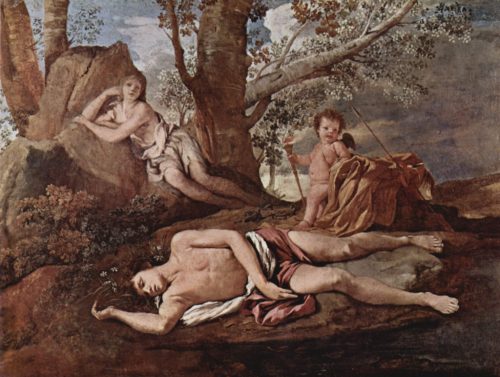
Portraying believable narcissistic characters in your creative writing poses a set of challenges that are similar to those posed by writing psychopathic ones. This is because both types of characters are extremely selfish, but there are many differences nonetheless. This article looks at the typical qualities of the narcissist so that a creative writer can most realistically portray such a character.
In that the narcissist is arrogant, self-absorbed and exploitative they are similar to the psychopath. Where they are different is that the psychopath seems dead inside to those that really know them, whereas the narcissist is full of emotions and life.
For example, narcissists are highly prone to strong feelings of envy. If the protagonist of your story achieved a major personal milestone, and received adulation from all around them, this could be the plot point that drove a secondary narcissist character into action.
That character might feel so bitter about the positive attention received by your protagonist that they began to scheme to bring them down. This could result in anything from gossip, to spreading false rumours, to a false accusation or even to violence. The more likely it is that the narcissist would step into the shoes of the protagonist if they took them down, the more strongly the narcissist will be motivated.
Narcissists also have a marked tendency towards magical thinking. If the narcissist makes a mistake, or lets someone down, or has an embarrassing failure of some kind, they are likely to use all kinds of implausible and bizarre explanations to escape any feeling of shame. Often they will simply distort reality rather than admit to being at fault for anything, and distortions of reality can lead to all manner of problems.
They are also likely to project their failures onto others, as a way of dealing with the internal feeling of shame. They are extremely reluctant to admit to either failure or weakness, and experience admitting such things as very humiliating. An intelligent character will be able to use this tendency as a way of determining the narcissist’s secrets, because they tend to accuse other people of what they themselves are guilty of.
Perhaps the defining characteristic of the narcissist is grandiosity, which manifests as a deep sense of superiority. This frequently becomes difficult for other characters in short order, because in the mind of the narcissist this sense of superiority gives them the right to treat others with contempt or disdain.
For this reason, narcissists tend to upset other characters. The more narcissistic those other characters are, the more they are likely to get upset – which is why it’s often dynamite when two narcissists meet. The coming together of two narcissist characters could make a fitting climax to any story or comedy.
Similar to the psychopath, the narcissist is capable of engendering powerful feelings of hate in other characters. These other characters are bound to feel that the narcissistic character is arrogant and rude, and the narcissistic tendency to be completely oblivious to the damage they cause only makes it more aggravating.
The narcissist is also capable of engendering powerful feelings of hate in themselves. Not being the centre of attention and adulation can be extremely damaging to the self-esteem of the narcissist. They might find meeting someone like a famous politician or distinguished intellectual to be an extremely unpleasant and belittling experience, enough to cause them depression for a while.
A narcissistic character will not necessarily bring misery into your story world, and this is another major way they are different to the psychopath. They may have found a way to sublimate their narcissism into bringing a lot of joy to people, such as becoming an actor or professional sportsman. Such a character might struggle with the excesses of their narcissism at the same time as mostly succeeding in bringing people joy.
Usually, however, narcissists do bring misery to those they encounter. The nature of the narcissist demands that they try and get the most adulation possible, and this means that they are prone to aggressively seeking high-status positions, even when there is another candidate who is obviously better qualified (a narcissist is not likely to realise that someone else is better qualified).
The narcissistic character might have an unpleasant early history that partially explains why they themselves are not a pleasant person. Many theorists believe that narcissism in adults is frequently caused by a lack of empathy and respect towards them when they were children, leading them to overcompensate as adults.
Frequently the narcissist will have one, or both, parents who did not seem to treat them as valuable when they were children. This lack of a normal, healthy level of positive attention in childhood is what makes the narcissist so desperate to receive it in adulthood. The narcissist might reveal, in their behaviour and actions, the resentment they feel towards perceived neglect.
*
This article is an excerpt from Writing With The DSM (Writing With Psychology Book 5), edited by Vince McLeod and due for release by VJM Publishing in the summer of 2017/18.
